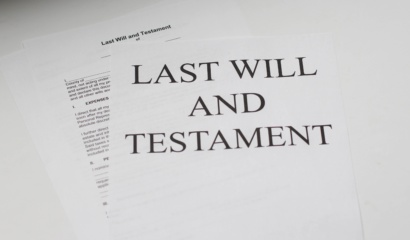Home / Business Legal Lifecycle / Retirement
Retirement
Advice on Retirement Planning for Business Owners
Phase 12 – Retirement Planning
Where a business owner has opted not to sell their business and wants to continue to trade, they will usually want to trade the business until retirement. If you decide to go through this phase of retiring from your business, you will need to ensure that you are properly set up and have planned for your retirement. The Retirement phase usually occurs after the business has reached and surpassed its peak.
Retirement may not be a result of age; it may also be forced upon you earlier due to illness and are not able to sell the business or because you decided to continue working in the business for a period after you sold it to help with the transition.
Obviously, there are pension plans in many countries but, in most countries, they are not sufficient to allow you to continue to live the lifestyle that you want to in the future. Properly planning for your retirement from business will ensure that you do not need to rely on such a pension and will be able to fund yourself into the future.
During this phase I will discuss setting yourself up for retirement, different superannuation options, and buy out periods.
Important considerations when planning your retirement are:
- Where will my income come from after I retire?
- What will happen to my business when I retire?
- Is there an opportunity to sell the business at this point?
- Do I need to revisit an earlier phase of the Business Legal Lifecycle?
Dangerous considerations when planning your retirement are:
- I do not need to do anything to set myself up for retirement
- It will just work out
- I do not want think about retirement
How To Plan Your Retirement
Earlier, I discussed the advantages of investing profits in income generating assets (see section 9). One of the reasons behind such an investment was to allow you to retire and continue funding the lifestyle that you deserve.
Business owners should seek advice from a qualified professional financial planner to help them plan their retirement and review crucial questions such as (this list is not exhaustive):
- (a) What income do you require to be able to live comfortably in your retirement?
- (b) What risks are you willing to take with your investments to increase your potential return?
- (c) What assets do you currently own and what income do they generate?
- (d)What assets do you need to acquire to generate the income that you need to retire comfortably?
There are many other considerations when planning for retirement that are unique to each person’s circumstances. The best advice I can give you is to seek the advice of a qualified financial planner, your lawyer and your accountant and collectively plan out your retirement strategy. There are many circumstances where clients have taken advice from a financial planner and set themselves up for retirement.
From the Case Files
An example of this was a client who, at the age of 40, realised that she had not put any plans in place for her retirement. She had operated a manufacturing business producing furniture for over 20 years and had made a nice profit along the way. However, she had spent the majority of her profits on consumable products and overseas holidays and did not have significant savings to be able to fund her retirement. She sought advice from a financial planner to assist with setting up a plan to try to save enough money to help her retire. She started to invest the profits from her business into investments that derived her income. This meant that by the time she turned 55 she was able to comfortably retire.
Superannuation
In some countries there is a legal requirement for employees to be paid superannuation, which is a way to save for retirement. The money then goes into a superannuation fund where the money is held until the person retires or reaches another predefined goal.
There are a number of ways that superannuation can be held. The two most common methods are:
- (a) A private business superannuation fund (or an industry-based superannuation fund) or
- (b) A self-managed superannuation fund
A private business or industry based superannuation fund is very attractive to people who want to put their money into superannuation. Generally, the fund is managed by a professional fund manager and the money is pooled with many other investors who also are saving for their retirement. A self-managed superannuation fund is often used by business owners. This type of fund gives the person a greater degree of control and allows the owner of the superannuation fund to make other investments that may not fall within the scope of other superannuation funds.
Before deciding which type of superannuation is right for you, you should consult your lawyer, accountant and financial planner to ensure that you choose the right fund and, in the case of self-managed superannuation funds, that you are properly managing the fund in compliance with local laws and regulations.
Buyout Periods
Often in the sale phase of a business, you may decide that you want to continue working in the business during a buyout period and you can also consider not selling all of the business assets. From the seller’s perspective, a buy-out is not something that they particularly may want as it is often used by the buyer to either reduce the purchase price or stage payments for it.
The main drawback with this type of arrangement is that the retiring business owner is at the mercy of the new business owner, the terms of the buy-out agreement and the ongoing successful operation of the business before they receive their profits.
The best way to avoid a buyout is to have a business that has been developed through the Business Legal Lifecycle, which will ensure that it is a properly set up and saleable business, and that you do not have to honour a buyout period for the business as the buyer will be able to operate the business with you.
You may also decide you don’t want to sell all of the business assets and want to retain some to generate a future income. A prime example is intellectual property, which you can license to generate an income after you retire. As with any investment, there is a risk in retaining ownership of part of the business.
Additionally, if you retain part of the assets, the sale price of the business will be lower. As discussed in section 11, it is important that any sale of the whole or part of your business proceeds with the right advice.
From the Case Files
An example of where this did not work was a business owner who owned a printing business. The business had been operating for over 30 years and the owner had originally bought it from the original founder some 20 years beforehand. Even with the significant challenges that printing businesses faced in recent years, this business was making a nice profit for the business owner to be able to live comfortably. A buyer approached the business owner with a view to being able to work with the business owner to increase the profitability of the business and then buy the business owner out for a more significant amount of money than the business was worth at that time. However, the new owner wanted the business owner to continue working in the business, increase the business and its profitability before being paid a price for the business. The business did not become more profitable and the buyer was shown to have no business acumen. The once profitable printing business was making the same mistakes that a lot of its competitors were making and was not innovating as required to beat the downturn in the printing industry. The business ended up folding with large debts and the client was left with nothing from the business that they had operated for 20 years.
Of course buyout periods work as long as the goals are realistic and achievable. An example of this was an accountancy business. The client sold his business to an employee who had worked in the business for some time. The client was able to maintain and slightly increase the business during his buyout period meaning that the seller was paid a premium for the business and the buyer was left with a strong and profitable business that continued to trade successfully for many years.
Summary of Planning Your Retirement from a Business
The decision to retire is one of the biggest that you will make during the Business Legal Lifecycle. Taking care of all of the aspects of the business and ensuring that you can comfortably retire is an important consideration for you to make. As I said earlier, the pension alone is generally insufficient to allow you to properly retire.
Therefore, it is critical that you take the advice of your consultants to ensure that you can properly navigate your way through this phase to allow you to live the lifestyle that you want. Properly navigating your way through retirement planning will mean that you are set up for the future and the negative effects of the final phase, Insolvency/Winding up, will not impact you too greatly.
Questions to ask before you progress to the next phase:
Do you have enough passive income to fund your retirement?
Have you determined what will happen to your business when you retire?
Is there an opportunity to sell the business at this point and do you need to revisit an earlier phase of the Business Legal Lifecycle?
Interested In Discovering Your Legal Risks?
FAQs
Have an Enquiry?






